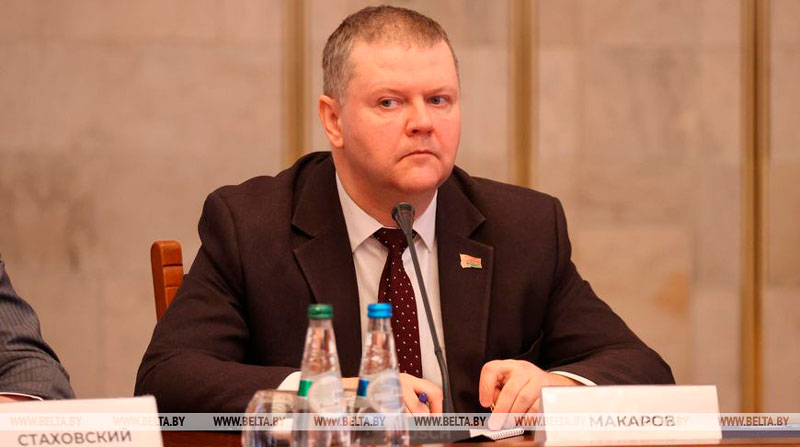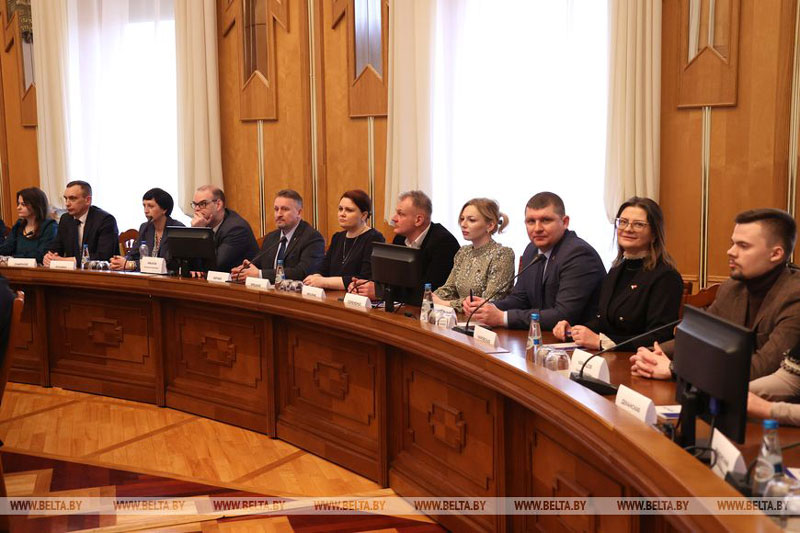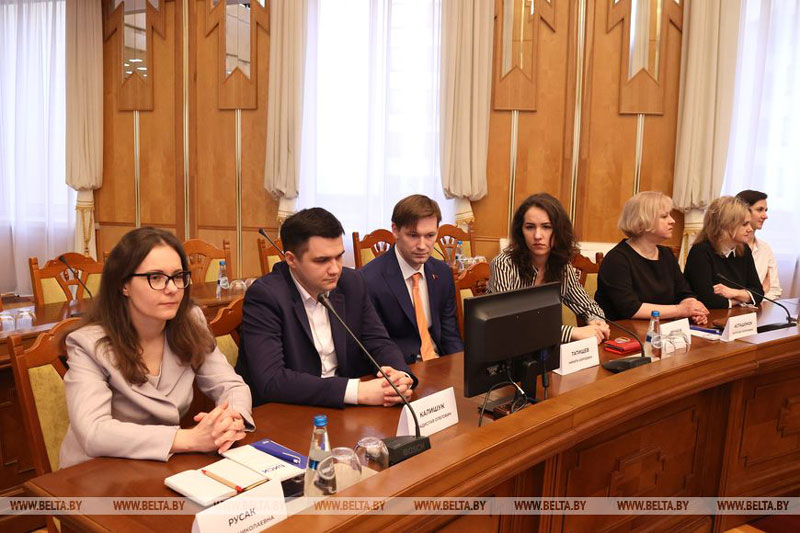
The Belarusian Institute of Strategic Research has become the first civil organization to raise analytics to a high state level. This was stated by the BISR director Oleg Makarov at a meeting of the head of the Administration of the President of the Republic of Belarus Igor Sergeenko with the managers and staff of the Institute, BelTA correspondent reports.
"In fact, BISR is the first civil organization that raised analytics to a high state level. We hope that this will lay a solid base for strategic analysis," the Institute Director said. According to him, BISR has a powerful team: "This is an effective team of thinking patriots able to solve the most important tasks together."
Oleg Makarov noted that most of the BISR research falls on situational analytics, especially during electoral periods. "And this is a request from government agencies, since in a changing environment it is often necessary to quickly figure out what is happening, measure the reaction of society, and focus on current issues. But the main emphasis of our work is strategic analysis, which has yet to be mastered in the future," he added.

Speaking about further work priorities, the BISR Director drew attention to the development of cooperation and scaling up cooperation with international partners - SCO, EAEU, BRICS, the Union State of Belarus and Russia.
It is also necessary to involve Belarusian regions in the expert dialogue, hold high-level meetings, build up joint competencies in relevant areas, develop regional branches of the Institute to the level of independent structures that prepare turnkey analytics.
One of the BISR priorities is the analytical support of the ongoing state transformations in the political sphere. These are the formation of the All-Belarusian People's Assembly as a constitutional body, movement towards party building, strengthening of civil society institutions, holding of elections and other important socio-political events.
"We find it important to elaborate effective models of a social state and social policy based on systematic studies of demands of society and capabilities of the state, primarily in healthcare, education, youth and pension policy," Oleg Makarov stressed. "We consider it important to model and transform society and specific social groups, their ideological, value and behavioral attitudes, and the development of human potential and capital in Belarus."

"We hope that in the future we will engage in a comprehensive study of issues affecting security in various fields, primarily political ones, identifying potential risks and threats related to trust in the society-state line," he said.
The development of technical analytics is also among the priorities for the future, and cooperation with China and Russia is underway in this direction. "We are looking at the development of artificial intelligence as a possible auxiliary tool for implementing analytical activities," Oleg Makarov noted.
"We can achieve success only in close interaction with all subjects of state policy. But the most important thing is the final result, which consists in constructing an attractive image of the future of Belarus, improving all spheres of social development, and improving the quality of life of our citizens," he stressed.
In an interview with journalists following the meeting, the BISR Director expressed hope that in the future the specialty of analyst will appear in Belarus which will be tought on a professional basis in domestic universities. After all, the role of high-quality analytics in all areas is increasing from year to year. "Analytical groups are appearing in ministries, and this is an objective process. We think this is inevitable. The increase in information flows and the speed of decision-making obviously require some kind of assistant for the manager, who would reduce some stages in the managerial cycle. We are this assistant," Oleg Makarov said.
"We hope that over time it will become an ordinary Belarusian profession – an analyst of a ministry, a state agency, an authority, and so on. It will spread because there is an objective demand," he concluded.

